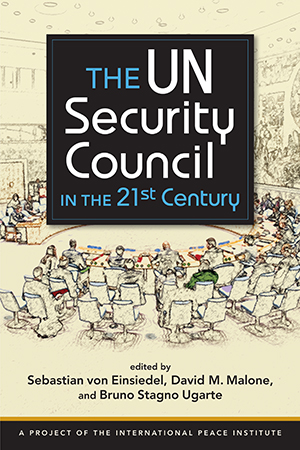
- 2016/998 pages
- A Project of the International Peace Institute
The UN Security Council in the 21st Century
Hardcover: $85.00
ISBN: 978-1-62637-258-0
Paperback: $55.00
ISBN: 978-1-62637-259-7
Ebook: $55.00
ISBN: 978-1-62637-526-0
Winner of the Friends of ACUNS Book Award!
After grappling for more than two decades with the realities of the post–Cold War era, the UN Security Council must now meet the challenges of a resurgence of great power rivalry. Reflecting this new environment, The UN Security Council in the 21st Century provides a comprehensive view of the council's internal dynamics, its role and relevance in world politics, and its performance in addressing today's major security challenges.
After grappling for more than two decades with the realities of the post–Cold War era, the UN Security Council must now meet the challenges of a resurgence of great power rivalry. Reflecting this new environment, The UN Security Council in the 21st Century provides a comprehensive view of the council's internal dynamics, its role and relevance in world politics, and its performance in addressing today's major security challenges.
No rights in India.







